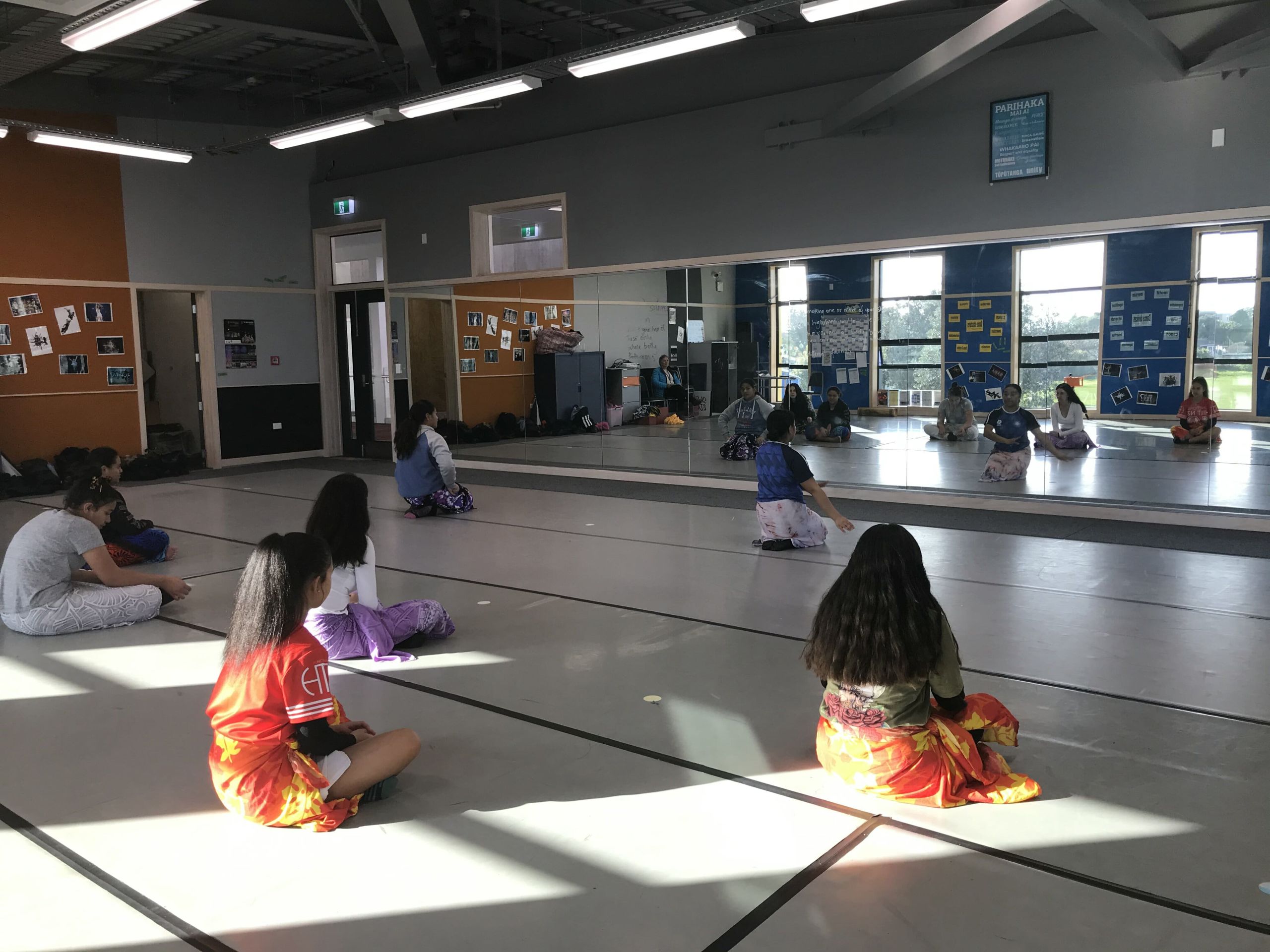The Polynesian Club at
KC
Eden Robinson follows the Seki Popo club as they seek to raise their profile.
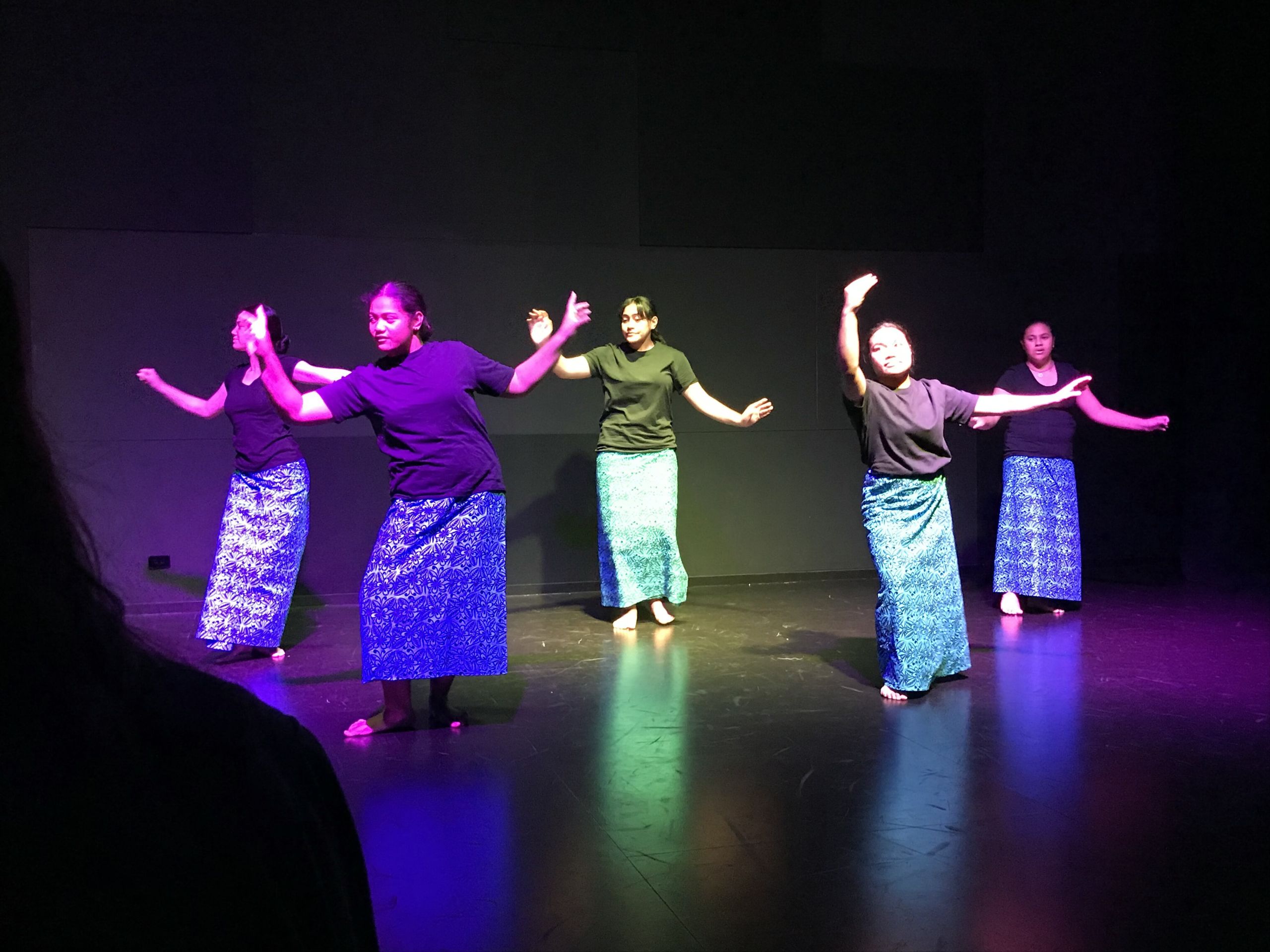
Kāpiti College prides itself on the array of extracurricular activities available for students to participate in. Whether these activities are sports, performing arts, academics, cultural or service, Kāpiti College has it all. Nestled among these groups is a club seeking more exposure: the Polynesian Club.
The Poly club, Seki Popo, offers a space for students to incorporate Polynesian culture into their education. This year the club has been preparing for public performances. With only a 2% Pacifica representation in the school, this will raise their profile.
The Seki Popo club began in 2017 when a teacher, Leanne Arthur, helped form a club for a few Samoan students who wanted a space to express their cultures. "These students wanted to use my classroom for dance practices and to perform. They asked if I could help organize meetings for them to make their group more official".
Other students of all backgrounds were encouraged to visit the club and learn the dances. Then, an essential foundation member joined, Taupule Mokeni, a Tuvaluan student.
"There was hardly anyone I knew at the school when I started in 2018. Once I joined the club, it just helped me feel more comfortable in school."
Because of the security Taupule found within the club, she consistently participated in the activities. She has now gained a leadership position. "Overall it's a nice way for me to grow within the school community, and I’ll remember my time here better because of it." She leads students to openly share their ideas for how they want their cultures to be represented.
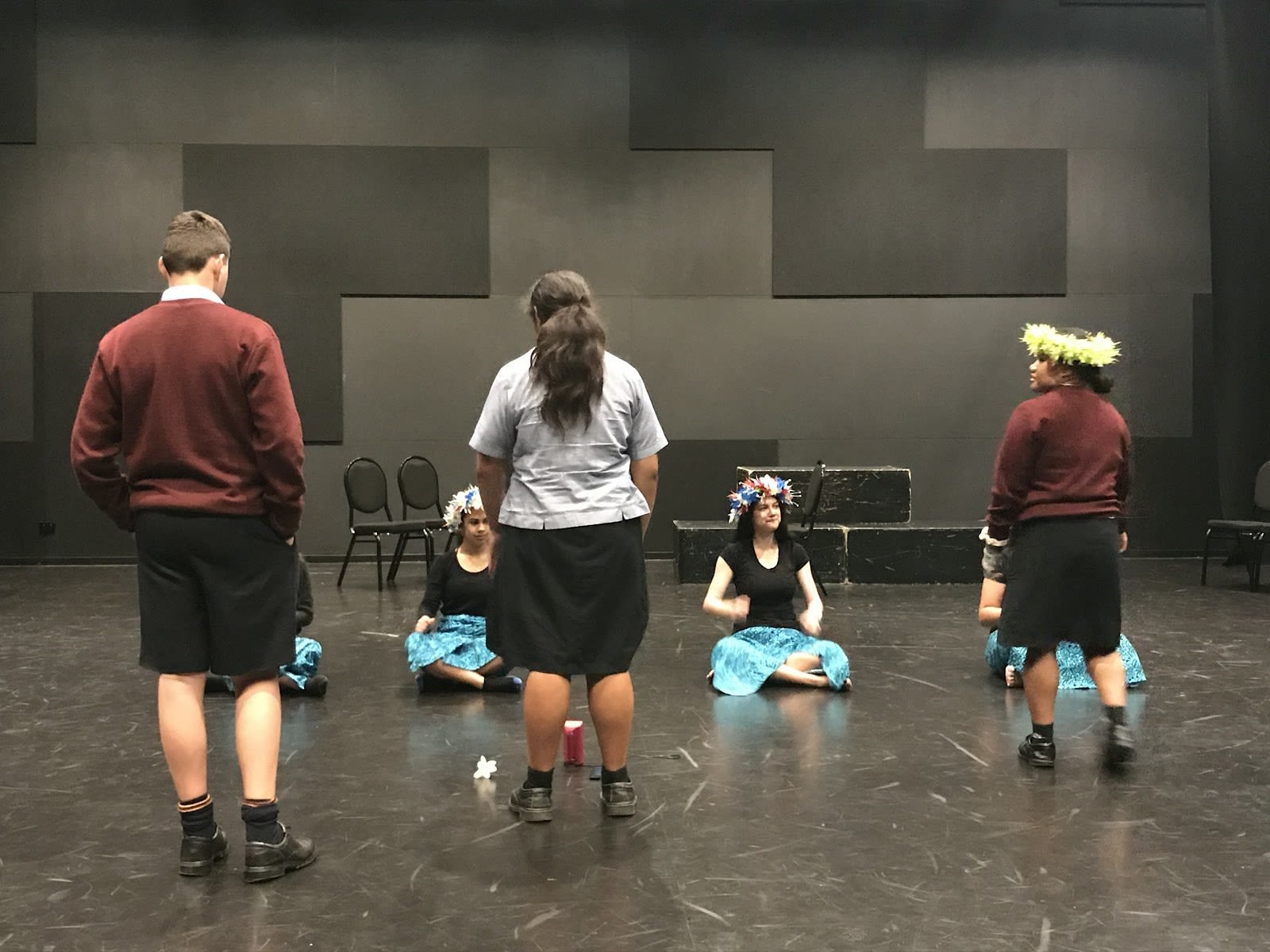
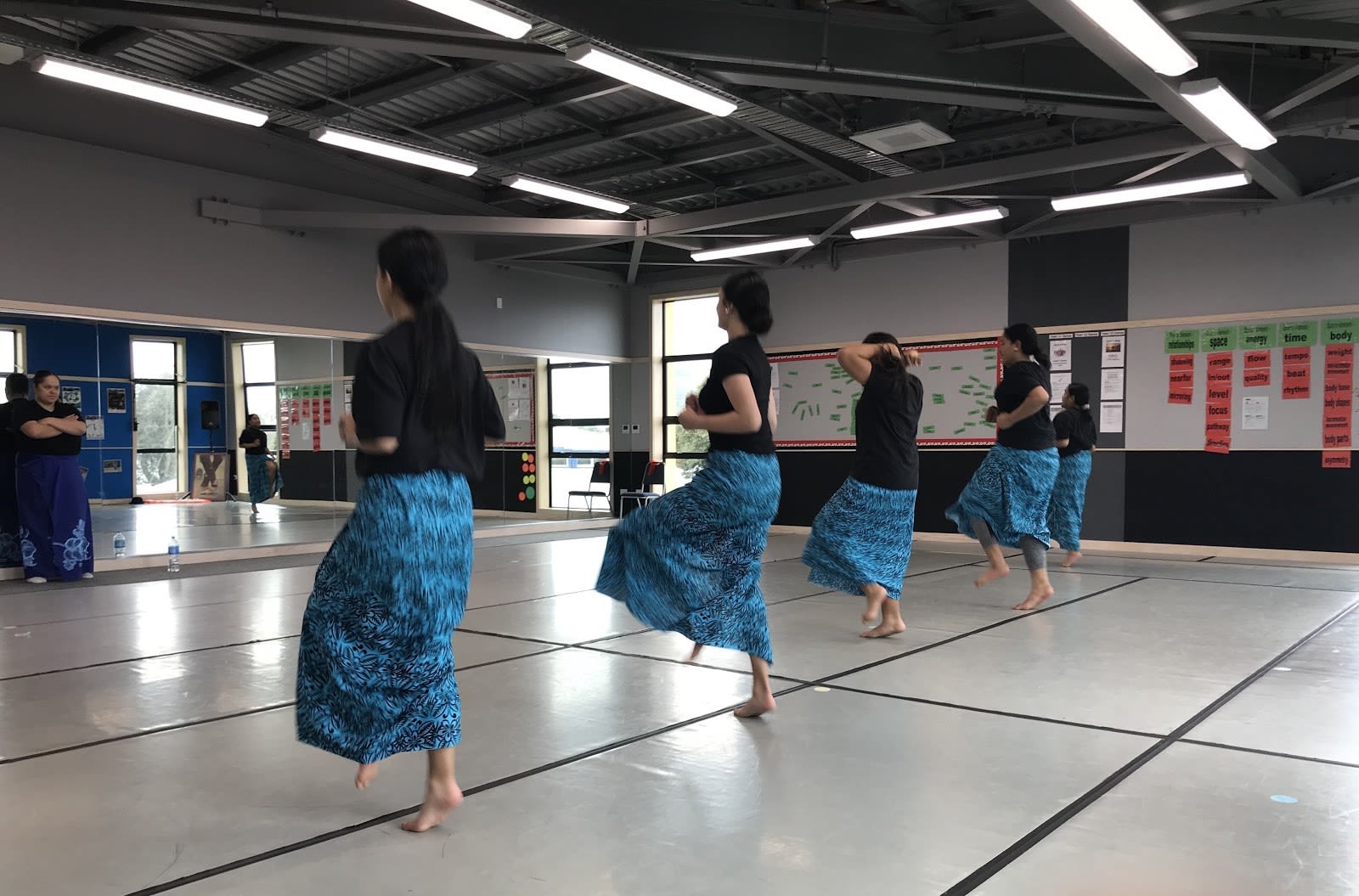
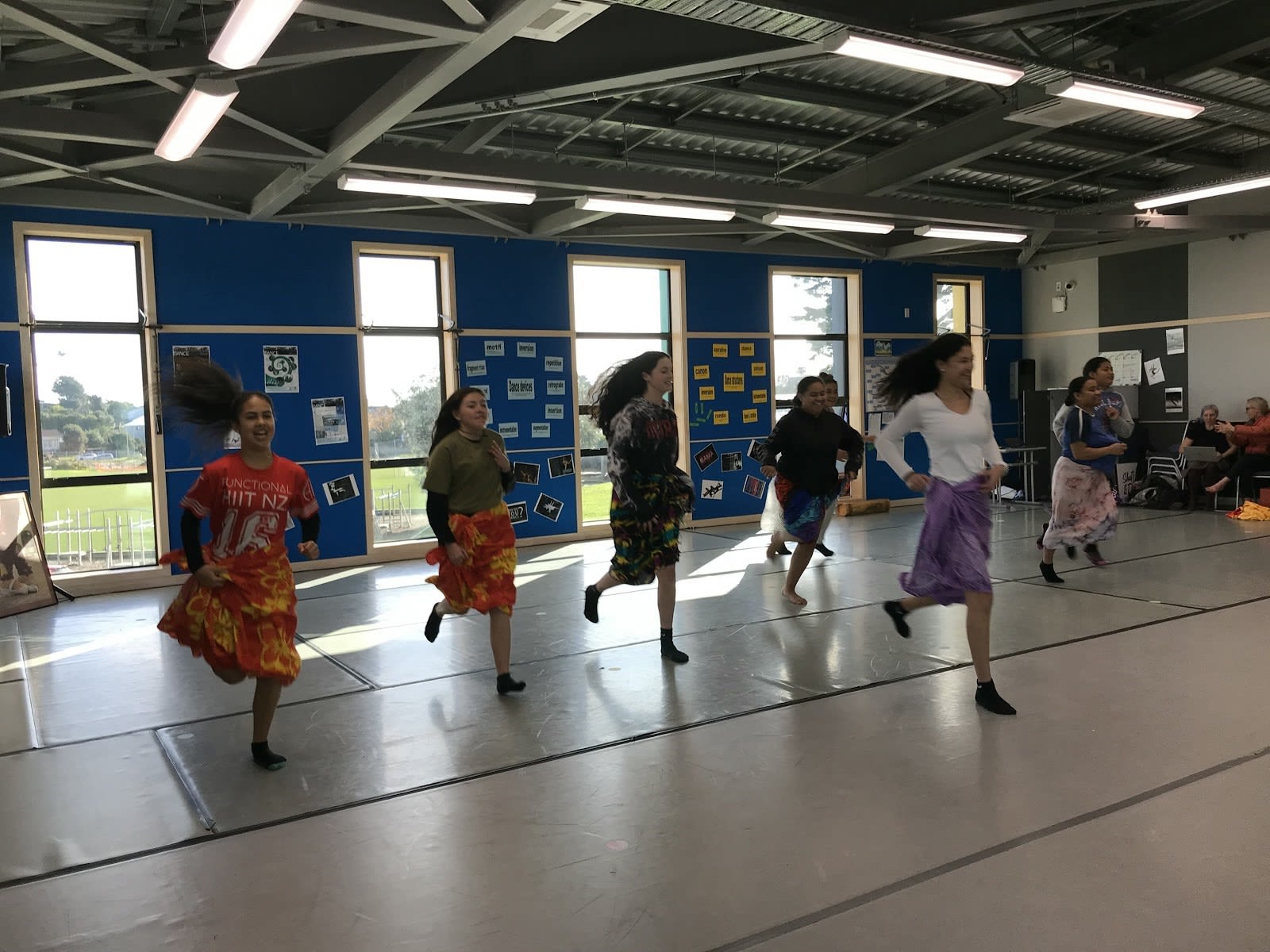
To promote their club in the KC community, Seki Popo had been preparing for multiple events to showcase their performance. They have a 20-minute set piece consisting of many songs, chants and dances derived from various Pacific backgrounds. A lot of practice for this performance took place during dance sessions led by Ahry Purcell, a Samoan dance teacher with a Bachelor of Performing Arts Degree. With Ahry's academic knowledge of Pacific Island dancing, she has coached the dancers to convey emotion through their movements.
"Dance is a form of expression, but to my Pacific culture, it has to be that we are storytellers. We tell stories through chants, songs, dances and generally in movement."
To enhance the performance, the club organized outfits to wear. Having traditional lavalava and head leis allows them to represent their cultures truly.
"It makes us feel like more of a group, a force to be reckoned with, since people will take us more seriously as a club," Lylla, a Samoan student, says. As well, it makes the members feel like a more cohesive group.
"Being part of a family at school, it's somewhere that I can belong to," Darlene Hune, a Maori student, says.
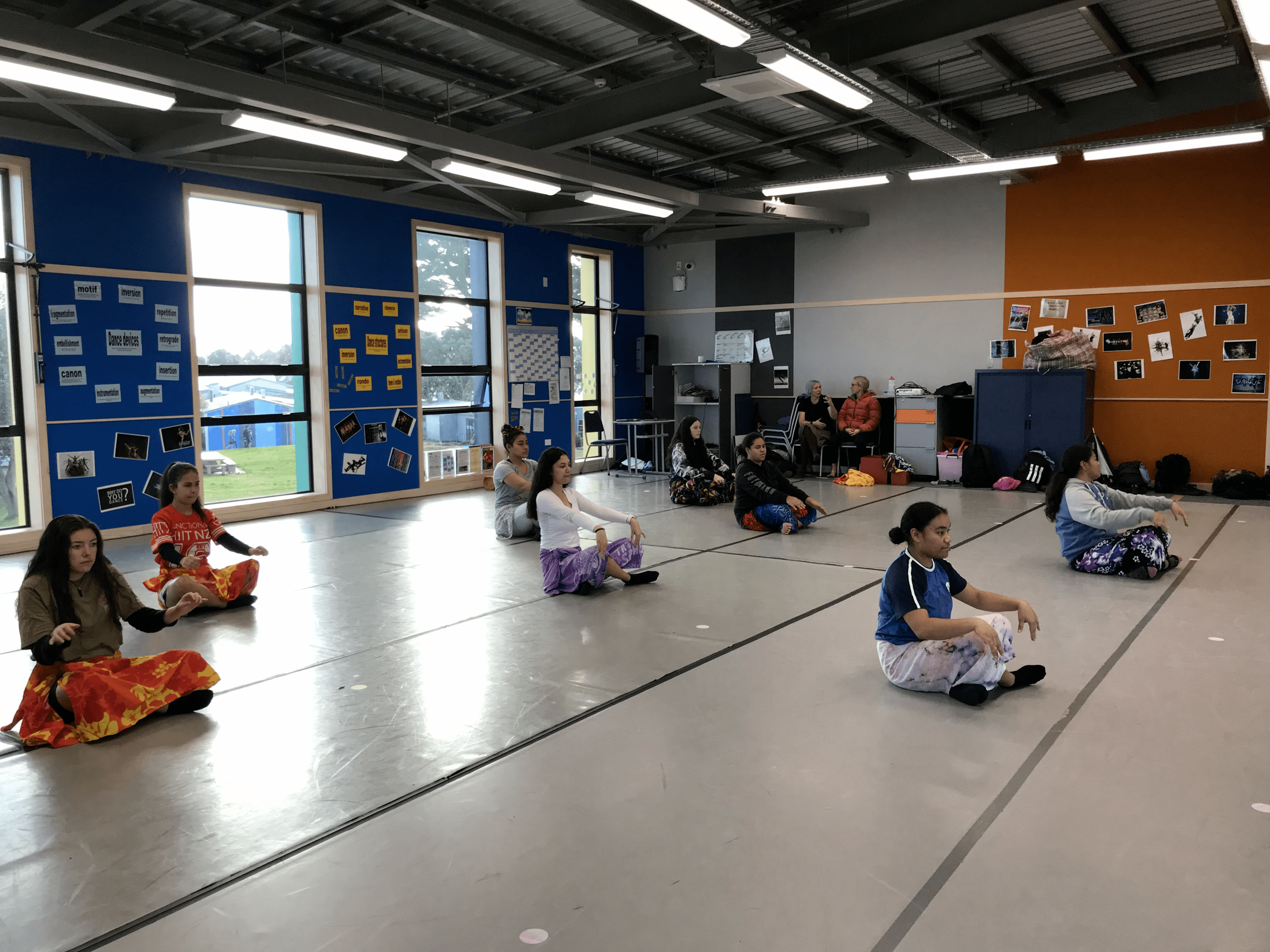
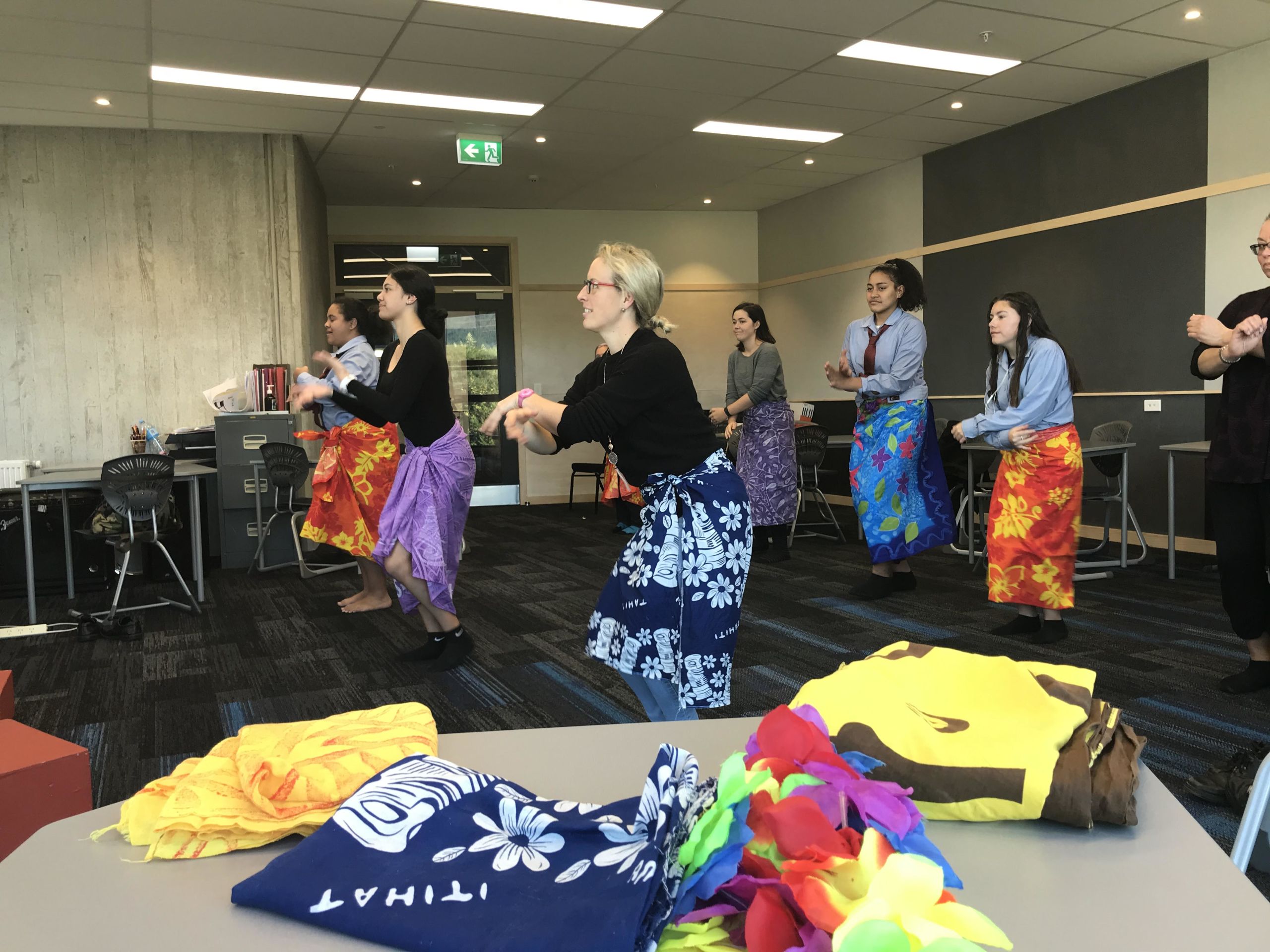
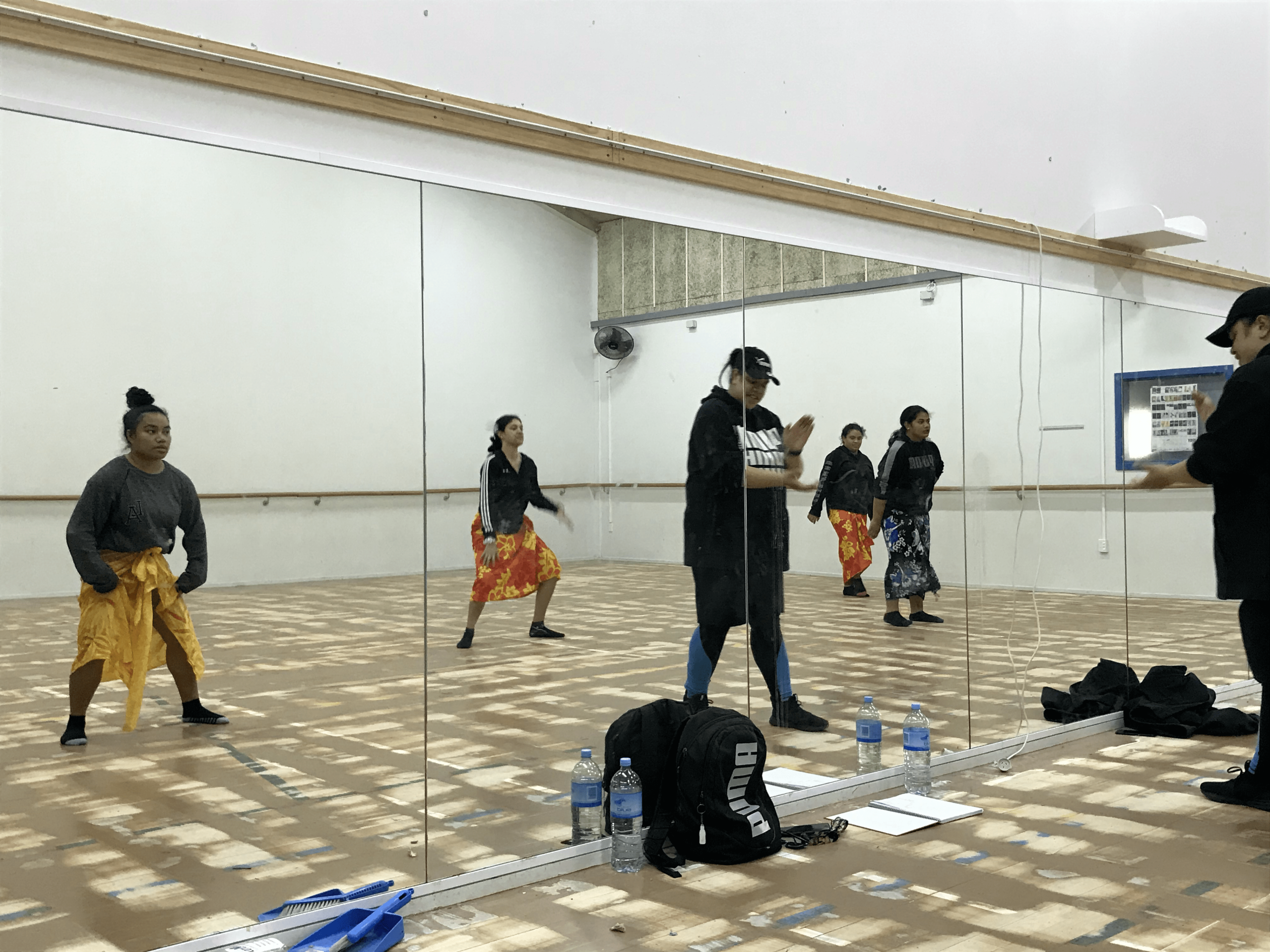
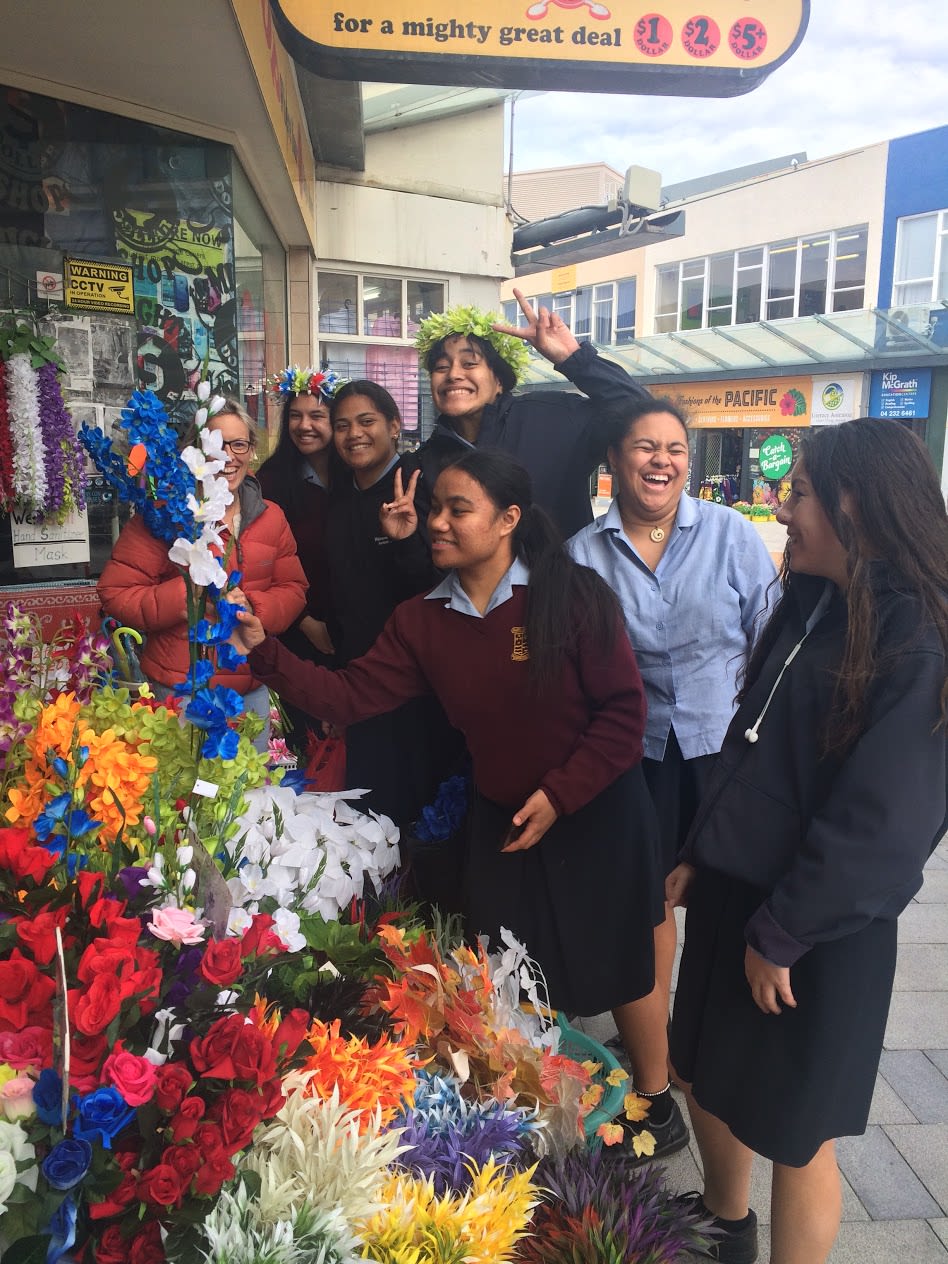
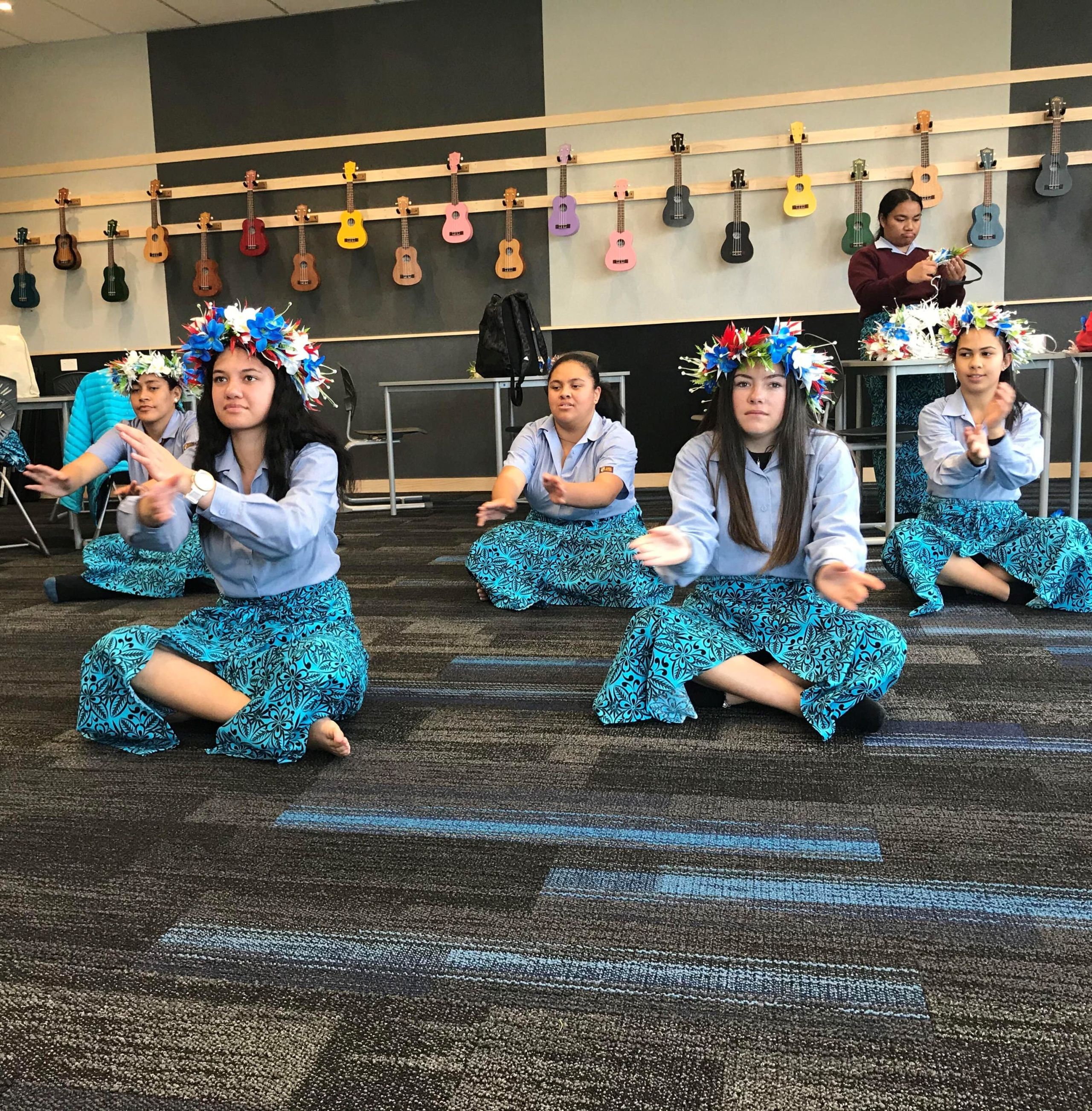
Seki Popo provides an environment for members to express their cultures within the school.
"I was lonely. I had no friends. I would hang out with a group of girls, but we wouldn't talk that much. So, just being with the club made me feel more comfortable," Taupule says.
"Before joining, I would feel isolated from everyone. In the club, I would just feel free".
Many other students joined for similar reasons. "I was new to the school. Taupule encouraged me to join the club to make friends with people of similar cultures to me," Christie Ati, a Samoan student, says. Despite being in an ethnic minority within the school, she could express her culture in the club. "I wanted to teach my culture to others". The club allows Christie to keep practising the beliefs and values she has grown up with.
Through this, the students can make lasting friendships with people who truly understand them. "It's nice to learn cultures other than your own. You can make more friends through doing this," Waikaramihi Rerekura-Pereira, a part Tongan, Maori and, Scottish student says. She has been able to nurture her culture and values through the friends she has made at school.
Ahry says the foundations of their lives are constructed by staying true to the beliefs of their cultures.
"I want them to be aware and proud of what line of greatness they come from".
These students get to share this gift through their dances. "It's just another way of expressing yourself or an idea to an audience," Ahry says. It is so important to understand when conveying the stories of their heritage fully.
"Appreciate the beautiful culture you have. And how much of an honour it is to share this with people who don't know".
The club does face some challenges, "It's quite hard being a teenager in an unfamiliar community. Because you're still trying to figure out who you are", Ahry says. The club gives the members a sense of belonging which they may not feel as much in their classes.
As such a new group, Seki Popo doesn't have the same heritage as other school clubs, says Leanne.
That's why the club's performance is so significant. "Hopefully because we look all together now, more people will want to join," Waikaramihi says.
Seki Popo undertook their first performance of the year, Island Time: A Taste of the Pacific. It was a significant stepping point for the club, as many students and teachers were watching. Seki Popo could finally experience their hard work paying off while presenting the weeks of practice put into their show.
"Appreciate what a beautiful culture we have," Ahry says this during one of the last practice sessions the club had before their performance.
"You come from a line of greatness, your ancestors are such strong people".
It's essential to continue the legacy of the people who built their cultures. So, not only does Island Time: A Taste of the Pacific, give exposure to the club within the KC community, but it symbolizes the people who brought them to where they are now.
These values don't only guide students throughout their life, but they are intertwined through the blood and bones of them. Seki Popo are reminded of who they are and what they represent.
During the performance, the room's atmosphere was filled with something incredibly meaningful - Pride. And the response from the audience - Awe. The performers conveyed not just their community culture within the school, but the cultures they are living.
